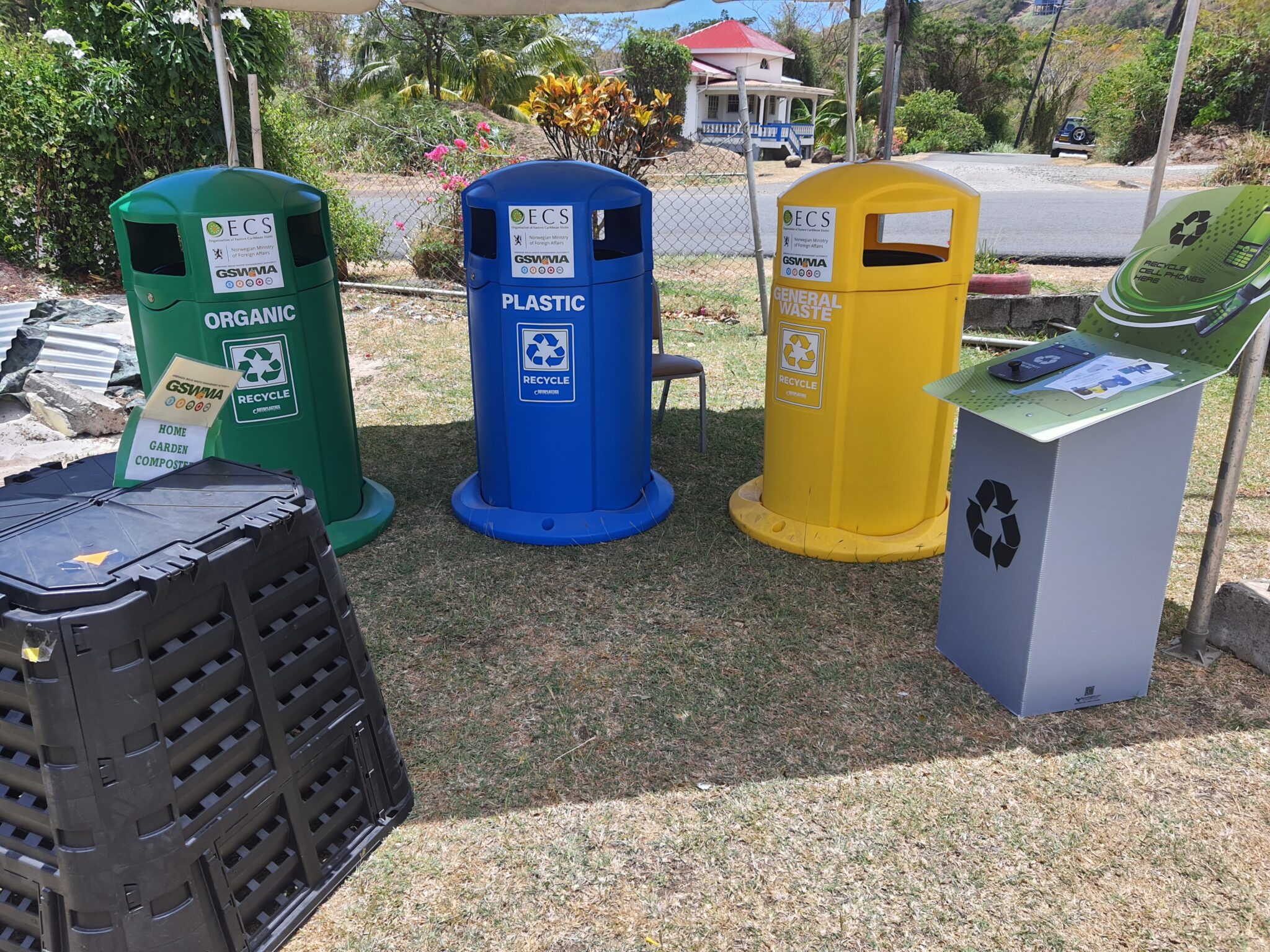Recycle OECS is a project that aims to reduce plastic pollution in the OECS region by recycling in the Eastern Caribbean. Recycle OECS goes above just recycling but encompasses researching and designing a sustainable waste separation, collection, and recycling model, with demonstrations in two member states.
The project also seeks to increase awareness of the environmental and health risks of plastic pollution and pollution in general among all stakeholders. The Recycle OECS project falls under a broader EU zero waste initiative, which works to strengthen the EU-Caribbean partnership for cooperation in the field of circular economy and solid waste management. The Recycle OECS project is a two-year initiative funded by the European Union and implemented by the OECS Commission in partnership with the Agence Française de Développement (AFD).
The Recycle OECS project is a response to the major problem of plastic pollution in the OECS, which has intensified due to the proliferation of plastics and Styrofoam in the manufacturing of consumer goods. Historically weak waste management systems and poor practices in OECS Member States have resulted in socioeconomic and environmental threats.
The rising scale of marine pollution has the potential to eclipse the considerable economic, health and cultural value of OECS marine ecosystems for the economic future of OECS Member States. The problem of water quality and marine pollution is a present and growing threat to the potential of the OECS Blue Economy.
Identifying the two most relevant and viable territories for demonstration of the OECS model
Based on the OECS model developed, implementing and demonstrating this in the two territories identified, addressing any weakness and gaps identified and enhancing the OECS model based on findings and lessons learned
Feasibility, design and implementation of two plastic waste collection projects, with the possibility to extend it both to treatment/processing and to other types of plastics than PET and HDPE
Structuring the logistics chain for the transport/export of plastic collected under the project, through the identification of possible transformation/recycling options and choosing the best options through test runs (transportation of recyclable material to various recycling plants)
Setting up communication and awareness campaigns around plastic collection and recycling, blue economy, circular economy and zero waste connections, through targeted communication activities
Setting up a monitoring and reporting system, including relevant data collection and visualization.
(Source: OECS.org)
